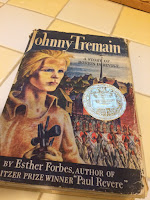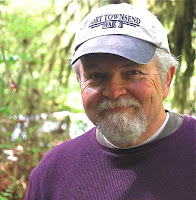 |
| Imprint Book Store, Port Townsend WA. Photo by Nancy Botta |
I have a mental image of a bookstore.
It is much like the Nancy Botta photo above, a cozy place on an inviting street and, just at dusk, the light shines out golden, as if to say "come on in."
Inside, the exotic scent of dry paper and printer's ink, invites—beckons—and the comfortable busy clutter of too many books, many of them calling out ... "look at me."
Some of the world's smartest and most interesting people, from all ages, are shelved here, waiting to whisper their truths, their secrets into our eyes, into our hearts, memories and lives.
My very first bookstore
You never forget your first one. Oh, okay, I don't remember the name, I was about ten. We had come back to Cambridge where my father attended the Episcopal Theological School and Harvard. My brothers and I attended running wild across acres of campus lawns in an area where history still lived.
A fence I jumped over put me into Longfellow's garden! No, he wasn't there. Richard Henry Dana lived around the corner ... well, used to. These streets and sidewalks knew their tread.
My first bookstore stood off Harvard Square, in memory, much as described above. We were about to drive back across country to our home in Nenana, AK, and each of us could choose a book for the trip. Esther Forbes lived up the street, and I often passed Paul Revere's shop. Some of those old buildings still had bullet holes, they claimed.
So I chose Forbes "Johnny Tremain," the tale that encompassed youth, adventure, Paul Revere and the American Revolution, to read on my way. I think I probably read it about ten times in the next few years and have it still.
 |
| Yes, this is it. A little ragged. |
With Christmas almost here ...
It's worth mentioning that someone you know, whom you can't think of a thing to buy for, would enjoy something from a bookstore.
Not every area has a small, independent bookstore anymore, though I understand they are coming back. But that's where to start, if you can.
Sadly, you won't find my books there. I'm unknown as writers go. It takes a bit of a 'name' to be worthy of shelf space limits and I don't have it. But it's something I enjoy aspiring to.
But wherever you are, resolve that this year you'll take the kids or grandkids into a real bookstore, and let them wander. Let them explore, discover, make a memory they can take down and enjoy, like this one, more than half a century later. And let them remember you in it.
Happy Christmas. Happy reading!



























